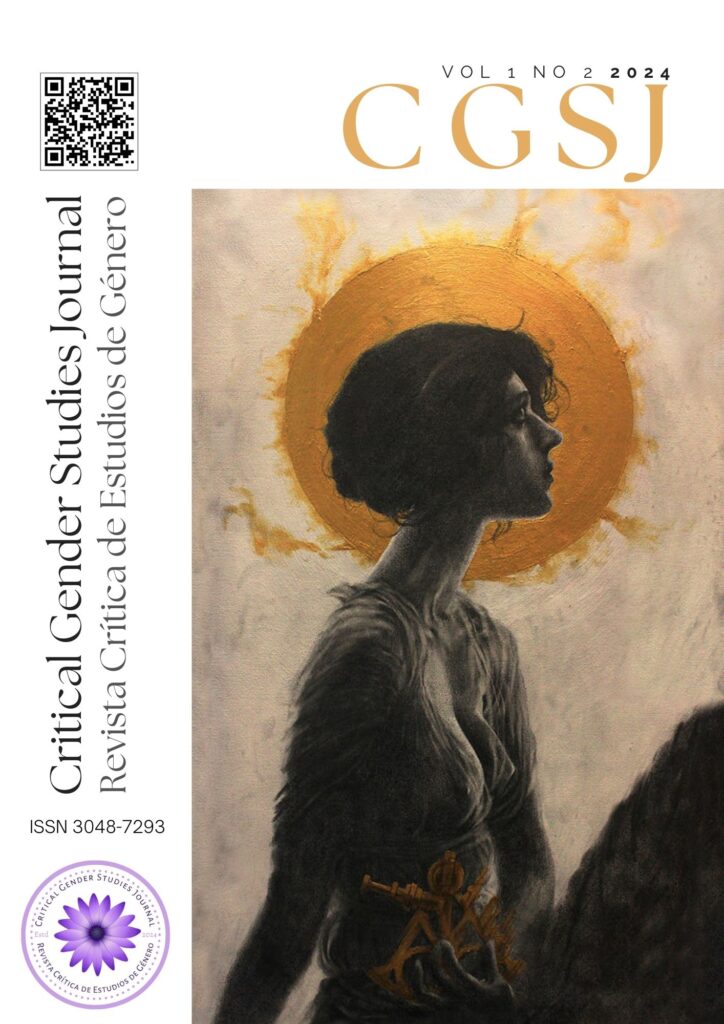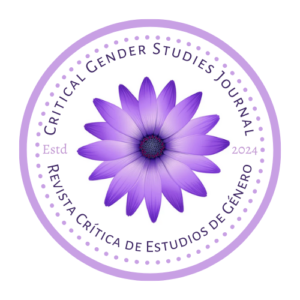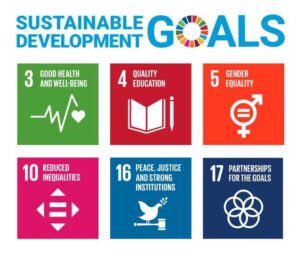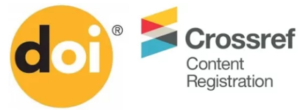Submission Guidelines
1st Critical Gender Studies Journal’s International Conference
(A Bilingual Conference in English and Spanish)
Organized by
Critical Gender Studies Network (CGSN), India.
In collaboration with
Doon University, Dehradun, India
Department of Spanish Studies, School of Languages
Jawaharlal Nehru University, New Delhi, India
Centre of Spanish, Portuguese, Italian and Latin American Studies
School of Language, Literature and Culture Studies
Universidad Católica del Maule, Chile
Department of Spanish Language and Literature
Theme: Critical Gender Studies Now: Interdisciplinary Interventions
CGSJ-IC 2025 seeks to advance the conversation around critical gender studies by integrating diverse perspectives from multiple disciplines that contribute to the singular cause of Gender Equality. Understanding gender now requires an approach that connects various disciplinary fields. Critical gender studies today are forging new pathways for inclusivity, equity, and justice. The conference is dedicated to creating a platform where scholars can share insights, challenge existing paradigms, and inspire transformative change. Through collaborative dialogue and interdisciplinary exchange, we hope to generate new ideas that can be translated into actionable strategies for real-world impact.
We invite you to join us in these essential discussions and engage with others who are passionate about making a difference. Let’s work together to build a more inclusive and equitable future by expanding the horizons of gender studies and breaking down the barriers that perpetuate inequality.
Suggested Topics:
- Gender and Education in the Underdeveloped and Developing Regions: Access, Equity, and Inclusion
- Gender-Based Violence: Causes, Prevention and Intervention
- Masculinity Studies: Deconstructing masculinity, its societal constructs, and the impact of these norms on individuals and communities
- Gender and Religion: Faith, Identity, Practice, Meanings and Meaninglessness
- Gender in Literature: Voices and Visions across the World
- Transgender Rights and Advocacy: Global state of transgender rights, the progress made, and the ongoing challenges
- Gender and Aging: Examining the Influence of Gender on the aging process and the unique obstacles faced by different gender identities
- Gender and Technology: Technological innovations empowering different gender identities while also addressing the systemic barriers perpetuating inequality
- Gender and Sports: Equity and Representation
- Indigenous Gender Identities: Traditions and Transformations
- Gender and Sexuality in Popular Culture
- Gender, Health and Medical Stereotypes: Access, Advocacy, and Future
- Gender in Politics: Leadership, Representation and Future Directions
- Gender and Law: Rights, Protections, and Reforms
Word Limit: 5000-7000 words. However, we also accept papers surpassing 7000 words.
Timeline for the Conference:
- Full paper submission starts from November 01, 2024
- Deadline: January 15, 2025
- Registration: February, 2025
- Conference Dates: March 08, 09 &10, 2025
- Publication: From April 2025
Fees: Presentation and Publication: USD 70.00.*
*Publication in the CGSJ is compulsory for all participants.
Waiver Policy: PhD research scholar, as the sole presenter and author, can apply for a 50% waiver of the fees.
Submission Process
Before submitting your work, please read the “Terms and Conditions”.
Formatting File Types:
We only accept MS Word files. Please do not send images or graphics separately. You should embed them in the text document.
Reference Style: Please use the APA style (https://apastyle.apa.org) for your references.
Visual Images: We welcome you to include visual images such as diagrams, maps, and pictures in your writing to enhance the reader’s experience. You should label all the images as ‘Figures’ and provide hyperlinks if possible. You are responsible for obtaining permission from the source to reproduce any visual images. We are not liable for any copyright infringement.
Language: The journal is published in English and accepts UK and US spellings. Please avoid using any racist or sexist language.
Submission of the Files
You need to submit and upload two doc files:
Cover letter (Download the Template) and Blinded manuscript. (Download the Template). Submit them as attachments to the Editor at editor@cgsjournal.com with a CC to contact@cgsjournal.com.
Best Practices for Authors:
- Register with www.orcid.org and send us your ORCID ID.
- Use your institutional email ID if you have one.
- Provide a link to your profile on your institutional website if available.
- In the Reference section, use DOI instead of long URLs.
- Remove the blue colour and underline the links.
- Declare any funding sources.
Word Limits
Research articles: The word limit is 5000-7000 words, including the Reference section. We may consider longer articles if they are of high quality.
Final Submission after Acceptance
After your work is accepted, you need to download the Final Submission Template and format your work accordingly. You also need to sign the “Declaration by Authors” and create a PDF. Finally, submit them as attachments to the Editor at editor@cgsjournal.com with a CC to contact@cgsjournal.com.
Post-acceptance Process
You need to complete the journal contributor’s publishing agreement after your work is accepted.
Declarations by Author/s:
Author/s will have to sign “Declaration by Authors” and send us scanned copies of the same after acceptance of the article concerning:
- Acceptance of the Terms and Conditions
- Authenticity of the research work
- Claim of authorship
- Plagiarism
- Conflicts of Interests.
Publication Policy
Publication Ethics
We take publication ethics very seriously and strive to uphold them in every aspect of our work. We follow the best practices and standards established by various academic associations to ensure the quality and integrity of our publications and our editorial process. We urge and welcome all the stakeholders involved with the journal, such as authors, reviewers, editors, and readers, to adhere to the ethical principles stated on our website.
Authorship
All published materials, such as articles, book reviews, poems, or art pieces, should acknowledge the authors properly. As we use the online medium, the corresponding author has the main duty to uphold the publication ethics by following the rules below:
Appropriate attribution and acknowledgment
The corresponding author is responsible for:
- Submitting an original research work,
- Informing all the co-authors about the submission,
- Obtaining consent from all the co-authors for publication,
- Recognizing the authors’ contribution properly,
- Acknowledging the assistance or support of other people or parties, if any,
- Signing and sending the Conflicts of Interest document on time.
Changes in Authorship
Authors may ask the Chief Editor to modify the authorship of their manuscript. The journal’s Editorial Board can approve or reject the request. Changes will only be allowed if the authors have a good justification and consensus. The journal may announce any change that occurs after publication.
Ghost,’ ‘guest,’ or ‘gift’ authorship
We condemn the dishonest practice of adding ‘Ghost,’ ‘guest,’ or ‘gift’ authors (or anyone who did not contribute significantly to an article) and act accordingly to prevent such practices.
Publication Process
We require that everyone involved in the journal’s publication process, such as editors, reviewers, and website managers, adhere to global standards of ethics and quality. We promise to improve the quality and impact of our publications. We also expect the authors to show the same level of dedication and responsibility to follow the international ethical guidelines established by various academic associations.
Submission
Authors should adhere to our guidelines when submitting to our journal. We may take action against any of the following practices:
Simultaneous Submission to Other Publication Agency:
We assume that the manuscripts we receive are not under consideration or will not be submitted to other journals during the review process. We will penalize the authors who make simultaneous submissions while their manuscripts are being reviewed.
Plagiarism
Plagiarism is a serious offense in the academic world. Authors who submit to us should be aware of the plagiarism issues. They should not copy anything without proper citation or legal permission in any way that may infringe the rights of others. They should acknowledge the works of others and obtain permission to use any material from the relevant parties. The journal will not be involved or liable for any copyright infringement.
Defamation or Promotion
We do not want authors to include anything that may be defamatory or promotional.
Gender, Racial and Language Bias
We do not tolerate any gender, racial, or language bias in the manuscripts we publish. Authors should respect the diversity and dignity of all people and avoid any discriminatory or offensive language.
Steps against Misconduct
We may apply any or all of these measures against unethical practices:
- The published content is retracted with an announcement.
- Modified content is published with an explanation for the change.
- The author is banned from submitting again. Notification with the proof of misconduct is sent to the author’s institution, supervisor, and/or any relevant authority.
Conflict of Interest
We value transparency in publication and urge all the stakeholders involved in the publication process – authors, editors, reviewers, and others – to disclose any potential conflicts of interest. We regularly update our publication policies and guidelines to address these issues.
Authors
Authors who publish in our journal should be aware of any conflicts of interest arising from financial, promotional, or honorary sources. The corresponding author is in charge of sending us the Conflict of Interest document that all authors have agreed upon and signed.
Editors and Reviewers
Editors and reviewers of our journal should avoid situations that may compromise their impartiality or objectivity while performing their roles. They should follow the guidelines we send them via email. The Chief Editor handles any cases of internal conflict of interest with confidentiality and discretion.
The publisher respects the professional independence of the editorial board members and does not interfere with their scholarly activities. The board has full autonomy in carrying out its duties.






